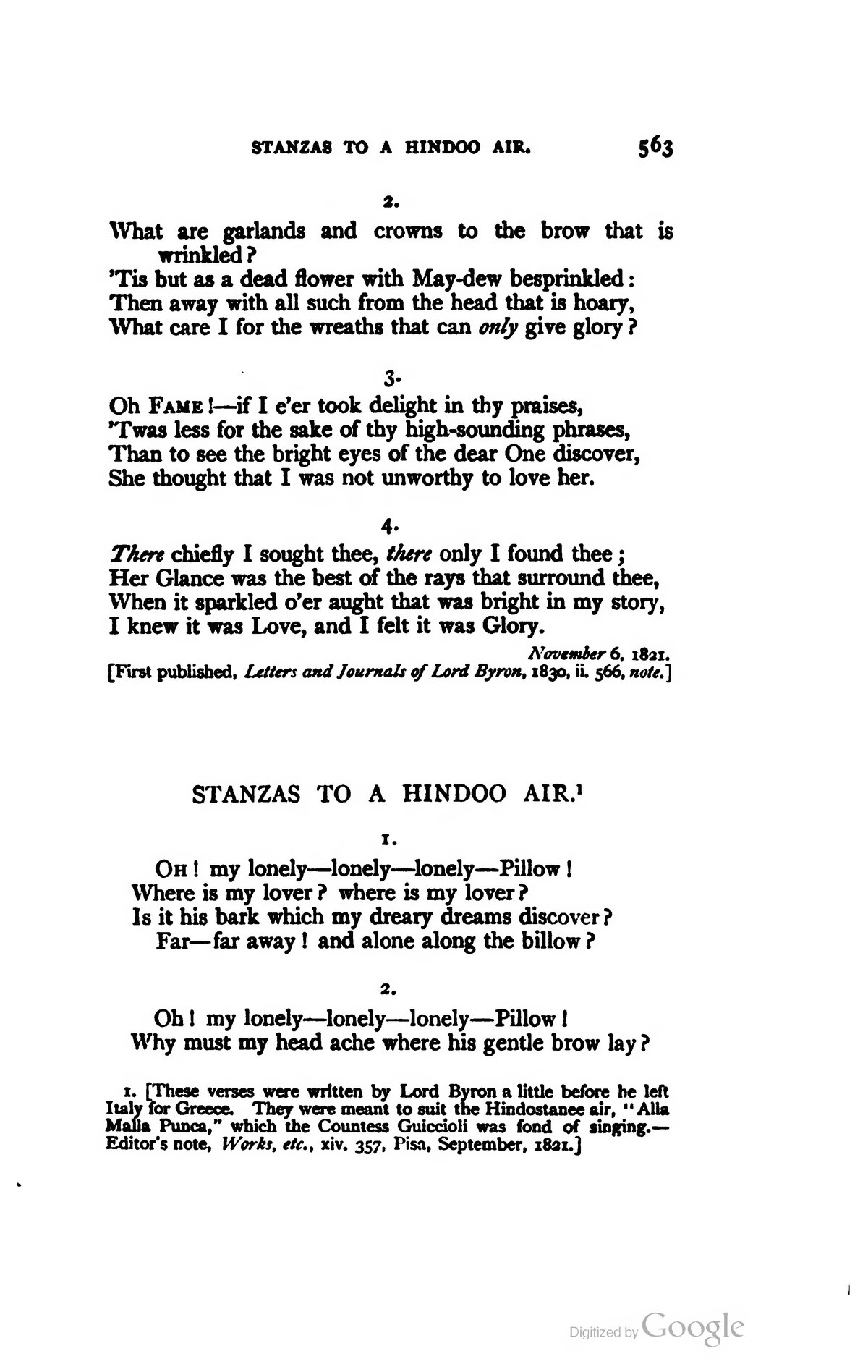2.
What are garlands and crowns to the brow that is wrinkled?
'Tis but as a dead flower with May-dew besprinkled:
Then away with all such from the head that is hoary,
What care I for the wreaths that can only give glory?
3.
Oh Fame!—if I e'er took delight in thy praises,
'Twas less for the sake of thy high-sounding phrases,
Than to see the bright eyes of the dear One discover,
She thought that I was not unworthy to love her.
4.
There chiefly I sought thee, there only I found thee;
Her Glance was the best of the rays that surround thee,
When it sparkled o'er aught that was bright in my story,
I knew it was Love, and I felt it was Glory.
November 6, 1821.
[First published, Letters and Journals of Lord Byron, 1830, ii. 566, note.]
STANZAS TO A HINDOO AIR.[1]
1.
Oh! my lonely—lonely—lonely—Pillow!
Where is my lover? where is my lover?
Is it his bark which my dreary dreams discover?
Far—far away! and alone along the billow?
2.
Oh! my lonely—lonely—lonely—Pillow!
- ↑ [These verses were written by Lord Byron a little before he left Italy for Greece. They were meant to suit the Hindostanee air, "Alla Malla Punca," which the Countess Guiccioli was fond of singing.—Editor's note, Works, etc., xiv. 357, Pisa, September, 1821.]
